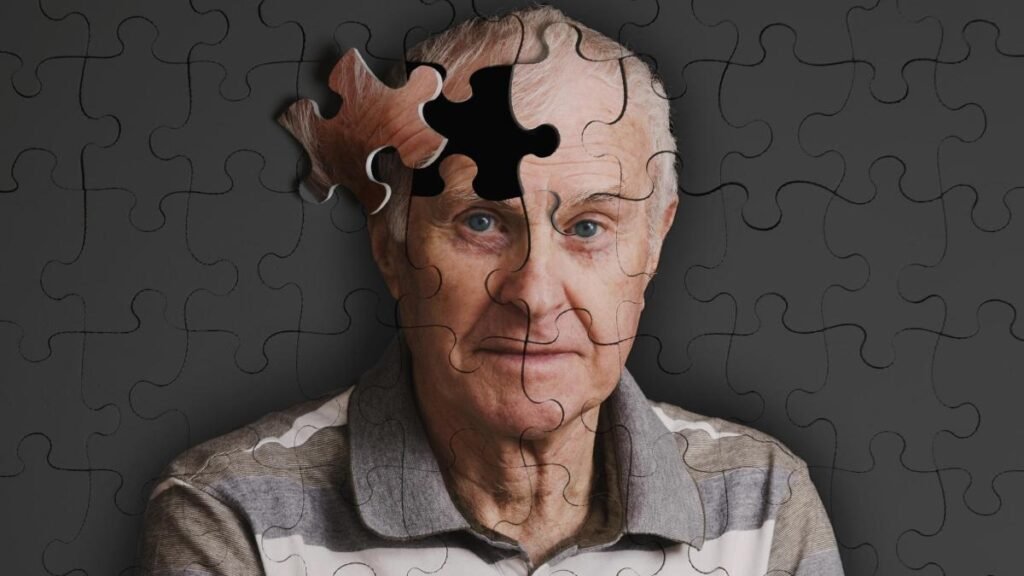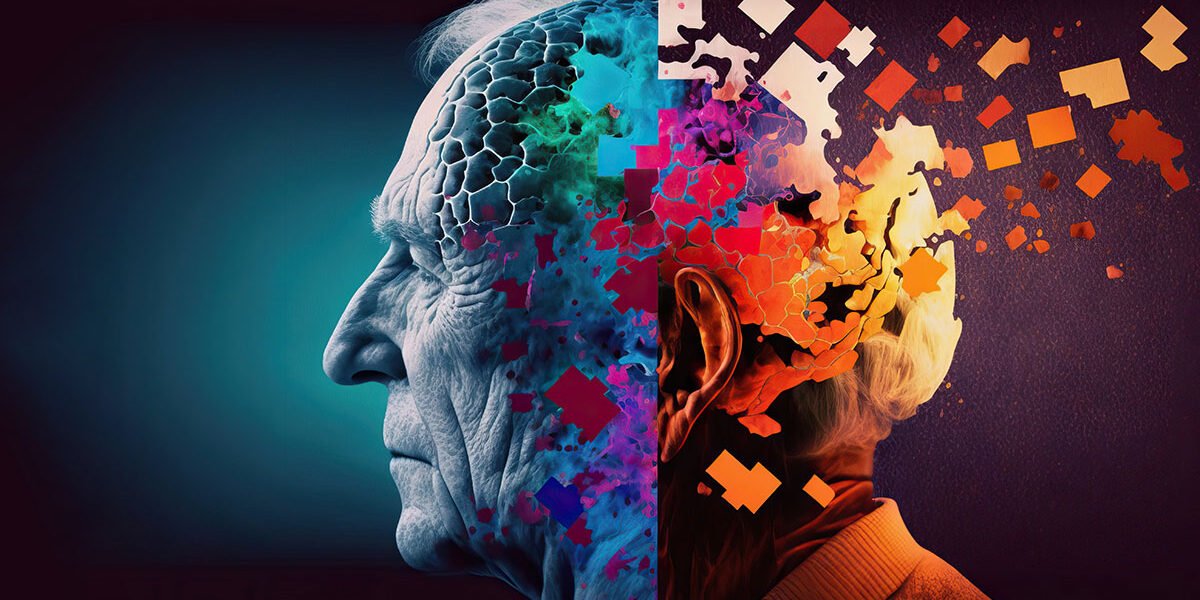Lewy body dementia is one of the forms of brain diseases initiated with distorted functioning of memory, thinking, and even movement. It occurs due to the deposition of abnormal proteins in the brain called Lewy bodies. Gradually, they cause slow degeneration of both cognitive and motor functions. Understanding the 7 Stages of Lewy Body Dementia in 2024 would make it much easier to manage this tough illness. Each stage is challenging to the patients themselves and their caregivers, and alertness to the signs is the first step toward preparation for what’s to come.
The other type of dementia most commonly developing is Lewy body, and it is known to often cause intense hallucinations and other symptoms such as tremors and sleep disorders. Early diagnosis along with proper care enhances someone’s quality of life a lot.
7 Stages of Lewy Body Dementia in 2024
The progression can be classified into seven stages, same as the other types of dementia. These stages may provide a basis for understanding how the disease progresses, though it is worthwhile to point out that the manifestations are different among patients.
No impairment of cognitive functions
At the beginning of the disease, there are no apparent cognitive impairments. A patient may not suffer from memory loss or behavior changes. It might last even for several years before symptoms appear.
Very Mild Cognitive Decline
During the second phase, the individual would likely be mildly cognitively impaired, and this is usually confused with common aging. A minor forgetfulness of names can occur as well as losing misplaced items; however, such impairments don’t limit everyday life.
Mild Cognitive Decline

At this point, some very pronounced decline of the cognitive system can be witnessed. Now, a person often faces trouble focusing or recalling events or information that occurred quite recently. Execution and handling of intricate functions, such as managing finances, also begin to fall. The most distinct feature identified in LBD is hallucinations, and it is likely that those could appear at this stage.
Moderate Decline
Stage 4 is moderate cognitive decline. In some instances, he cannot get himself out of the short-term memory and will sometimes lose his orientation in well-known surroundings. He cannot function in daily activities without assistance and requires assistance to get grocery, cook meals, or remember to take medicine. 7 stages of Lewy body dementia hallucinations become very common; even the mood changes such as depression or anxiety may set in.
Moderately Severe Cognitive Decline
Memory impairment worsens at this stage. He may forget such vital information as a home address, phone number, and even names of very close members of his family. Such a patient requires significant support for everyday personal care, possibly needing assistance in dressing and bathing. Patients often hallucinate and may present with delusions, losing the relationship between reality and the hallucinations.
Intensive Deterioration
In stage 6, cognitive abilities deteriorate. Patients often require full-time care since they are unable to engage in even the simplest daily living activities. Often, they fail to recognize familiar faces and often have a form of disorientation relating to time and place. In this phase, 7 stages of Lewy body dementia hallucinations could prove rather taxing and overwhelming.
Extreme decline in cognitive functions
The last stage of the disease is characterized by an inability to communicate properly and is often confined to bed. The decline in physical ability is strongly marked; in addition, the care is required around the clock. Hallucinations and confusion also remain, and there is often a possible risk factor for other complications, such as infection or, possibly respiratory.
What is the Life Expectancy for a Person with Lewy Body Dementia

A person with Lewy body dementia lives on average for a span of years. It is a question of the patient’s health condition and at what stage of the disease the diagnosis takes place. Most people survive for 5-8 years after the start of symptoms if diagnosed with LBD. But some survive for 20 years or more. Good early diagnosis and comprehensive care can bring a positive impact on this person’s quality of life, which may increase his span of life.
One-year rule for Lewy body dementia
The “one-year rule” has been contemplated in differentiating Lewy body dementia from Parkinson’s disease dementia. If cognitive symptoms-for example, memory loss or hallucination-occur within one year after motor symptoms-like tremor or stiffness-have started, most probably it is Lewy body dementia. If cognitive symptoms occur more than a year after motor symptoms, that would be more classified under Parkinson’s disease dementia.
This difference is significant and can guide treatment approaches because it also better clarifies the course of the disease.
Timeline about Lewy Body Dementia.
Lewy body dementia differs greatly in progression from person to person. For some, it can progress very fast, where for others it may occur very slowly. Stages as provided are generally a guideline, and each individual’s experience with LBD will be unique.
Here is a table describing the typical course of Lewy body dementia from early signs until late-stage symptoms
| Phase | Years |
| Phase 1 & 2: Early Phase | 1-3 years (mild cognitive impairment) |
| Phase 3 & 4: Intermediate Phase | 2-5 years (moderate cognitive impairment) |
| Phase 5 & 6: Late Phase | 3-7 years (severe impairment of both cognitive and motor abilities) |
| Phase 7: Terminal Phase | 5-8 years (extreme impairment of cognitive functions) |
Management of Hallucinations in Lewy Body Dementia
Hallucinations is one of the common but yet most challenging symptoms of Lewy body dementia. Hallucinations present themselves as a very vivid, very much related visions that carry images of people, animals, or objects which are not there in reality. For some people the hallucinations are harmless and non-threatening but for many others they are screamingly distressing.
The management of hallucinations in LBD is complex and includes medical treatments, environmental adjustments, and psychological support. Here are some tips on how to cope with the 7 stages of Lewy body dementia hallucinations.
Medication
Antipsychotic medications can be used, but their use must be done with extreme caution as patients with LBD are very susceptible to the effects of the drugs.
Providing an Amicable Environment
Visual and auditory distraction will be decreased. An adequately lit and quiet room will minimize silhouette outlines or stray sounds from being incorrectly formed into a hallucination.
Comfort and Validation
Gentle reassurance and the acknowledgment of the experience may help reduce the anxiety if the person is not further encouraged to reinforce the hallucination.
Treatment and Care Alternatives
Lewy body dementia is not curable, but it can be well-control by such treatments available as showing relief from the symptoms and improvement of quality of life. The treatment usually involves a multidisciplinary team of neurologists, psychiatrists, physical therapists, and caregivers.
Medications
Cholinesterase inhibitors are usually prescribe to control cognitive symptoms, and levodopa for motor symptoms. Antipsychotics are give carefully since they can worsen the symptoms of a patient with LBD.
Physical Therapy
In terms of motor symptoms, exercises help to improve mobility as well as balance. Occupational therapy helps patients in terms of day-to-day activities.
Support Groups
Both the patients and caregivers can join these groups. Sometimes, the groups act as emotional support and help guide the patients practically.
Conclusion
The 7 stages of Lewy body dementia are something that the caregivers and loved ones must understand. This enables patients to be better prepare or planne according to the progressive condition. Patients with LBD can live much better if they receive proper care and support amidst the deterioration of cognitive and physical functioning. If noticed at an early stage and medical advice sought, their symptoms will most likely be better manage.
The hallucinations of Lewy body dementia can be so complex and challenging. But because of proper strategies applie, they may be manage. Keeping oneself abreast and informed and proactive in care often makes the difference along the journey through Lewy body dementia.
FAQs
1. The seven stages of Lewy body dementia?
The seven stages of Lewy body dementia are as follows: no cognitive decline (stage 1), very mild cognitive decline (stage 2), mild cognitive decline (stage 3), moderate cognitive decline (stage 4), moderately severe cognitive decline (stage 5), severe cognitive decline (stage 6), and very severe cognitive decline (stage 7). Since each successive stage deteriorates into different levels of memory loss, thought loss, and physical functions.
2. How long does each stage last?
Caveat: Length varies, though one may tend to linger on more primitive stages (1-3) for 1 to 3 years; mid-stages (4-5) for 2 to 5 years; and the final periods of (6-7) for 3 to 7 years. Overall, it is approximately 5 to 8 years in Lewy body dementia.
3. What are some of the common early signs of Lewy body dementia?
The early symptoms commonly seem pretty mild because basic forgetfulness, problems concentrating or losing train of thought, and confusion occasionally occur. In some cases, mild hallucinations can also be experience. They are always mild at first.
4. How is the late stages of Lewy body dementia?
In the later stages, there is a severe loss of memory, inability to identify familiar faces, and total dependency on the caregivers. Hallucinations, movement disorder, and communication problems are secondary to these effects of the disease.
5. Can hallucinations occur in all the stages of Lewy body dementia?
Hallmark symptoms. Of course, hallucinations are a hallmark symptom of Lewy body dementia and can even occur as early as stage 3. They tend to increase in frequency and intensity in the later stages.
6. In what main aspect do Lewy body dementia and Alzheimer’s disease differ from one another?
Lewy body dementia is more likely than Alzheimer‘s to demonstrate major motor dysfunction, visual hallucinations, and fluctuations in consciousness.In Alzheimer’s, memory loss predominantly occurs early, with fewer early motor symptoms.
Read more about Health at USA up trend



